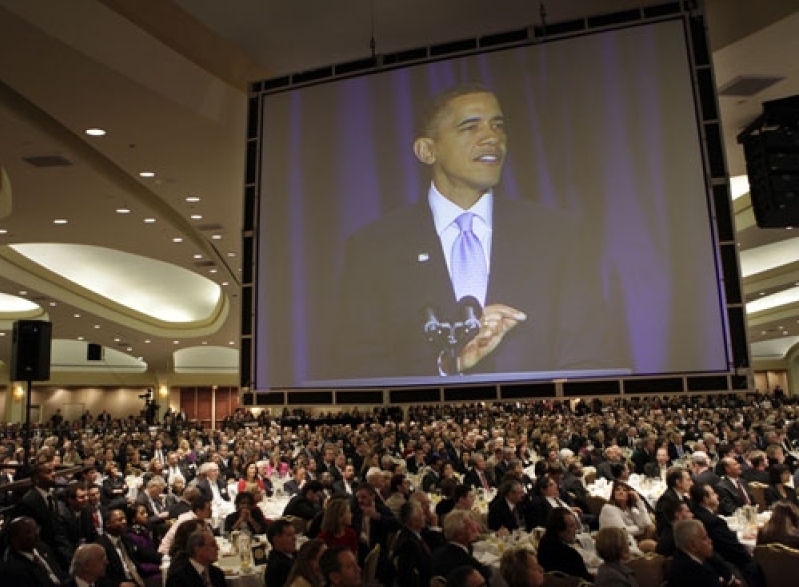
WASHINGTON – President Obama called for civility in the public square and said prayer can help people become more humble, during his address at the National Prayer Breakfast.
“For while prayer can buck us up when we are down, keep us calm in a storm; while prayer can stiffen our spines to surmount an obstacle – and I assure you I’m praying a lot these days – prayer can also do something else,” Obama said Thursday morning. “It can touch our hearts with humility. It can fill us with a spirit of brotherhood. It can remind us that each of us are children of a awesome and loving God.”
Obama’s remarks about the power of prayer came after he called on Washington lawmakers in his speech to overcome division and learn how to “disagree without being disagreeable.” He said no political party has a “monopoly on truth” and that lawmakers need to leave their comfort zones to bridge divisions.
“[S]urely you can question my policies without questioning my faith, or, for that matter, my citizenship,” he said, drawing laughter.
The president gave examples of civility that included conservative pastors helping to fix the country’s broken immigration system, evangelical leaders mobilizing churches to protect the environment and progressive Christians promoting responsible fatherhood and healthy marriage as an anti-poverty solution.
“It’s not what would be expected from them,” he said. “Stretching out of our dogmas, our prescribed roles along the political spectrum, that can help us regain a sense of civility.”
The president’s attendance at the annual National Prayer Breakfast follows a long tradition dating back more than a half century. Every U.S. president since President Eisenhower has attended the annual event.
The invitation-only event brings together members of Congress, foreign diplomats and business, military and religious leaders. It is sponsored by the secretive evangelical Christian organization The Fellowship Foundation, also known as The Family. Its members include high ranking U.S. government officials, corporate executives, and heads of religious organizations as well as non-U.S. leaders and ambassadors.
Obama during his speech also briefly mentioned Uganda’s proposed anti-homosexuality laws, which he called “odious.”
Uganda’s Anti-Homosexuality Bill seeks to strengthen the criminalization of homosexuality by introducing the death penalty and imprisonment of those suspected of "aggravated homosexuality."
Some religious and gay rights groups have accused The Fellowship Foundation of being directly tied to the Uganda Anti-Homosexuality Bill because of the group’s close ties to David Bahati, the Ugandan politician who sponsored the controversial legislation.
To protest the National Prayer Breakfast, religious and gay activists have organized prayer events in 17 cities as a more “inclusive” alternative.
Recently, however, Doug Coe, considered by many to be the spiritual leader of the Fellowship Foundation, and other Fellowship leaders told Dr. Warren Throckmorton that they are opposed to the death penalty and criminalization of homosexuality. Throckmorton, associate professor of psychology at Grove City College in Pennsylvania, has been closely monitoring the Anti-Homosexuality Bill and leading grassroots efforts to speak out against the measure.
In addition to President Obama, Secretary of State Hillary Clinton addressed the thousands gathered at the annual prayer event, and college football star Tim Tebow gave the closing prayer.







